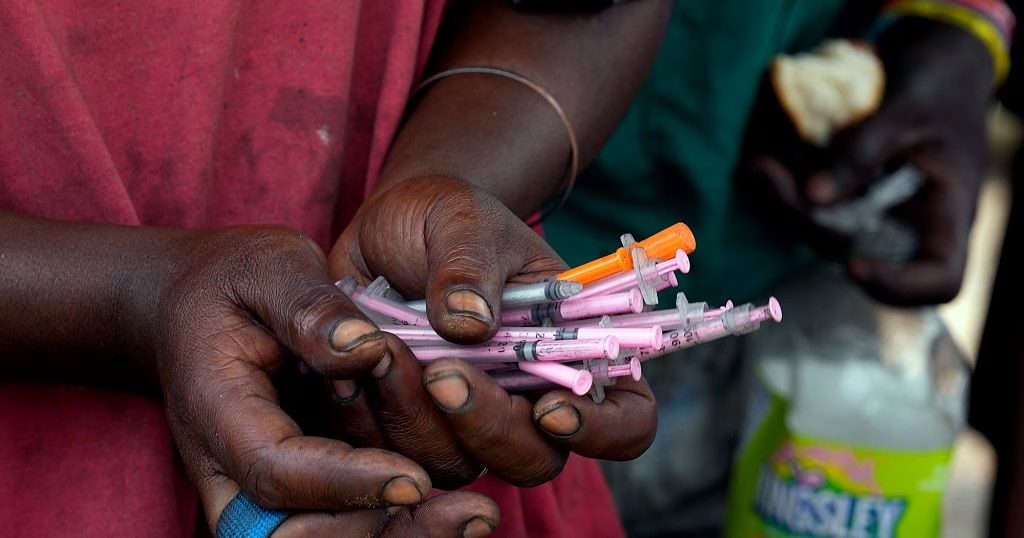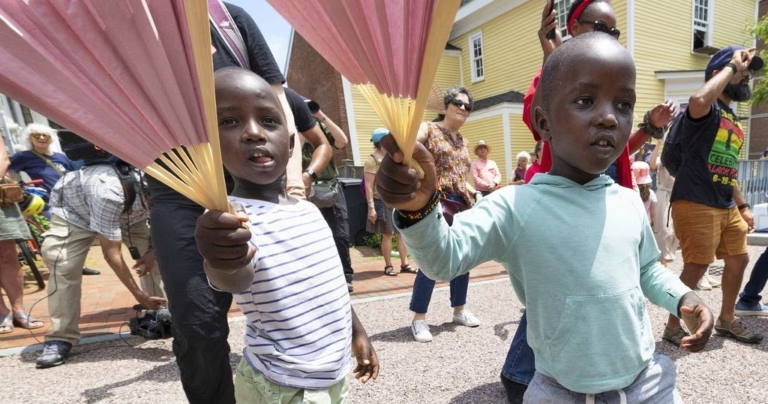In a secluded corner on the outskirts of South Africa’s capital, surrounded by litter and makeshift structures, dozens of people struggling with drug addiction have found refuge. Here, they self-administer and share needle injections of heroin-laden mixtures. A dedicated group of health workers, in an initiative supported by the University of Pretoria and the Tshwane municipality, makes weekly visits to this location and a dozen others across Pretoria. Their mission: to offer the exchange of used needles for new, sterile ones.
While the concept of needle exchange is not novel globally, the Trump administration’s decision to drastically cut 83% of U.S. Agency for International Development programs worldwide has significantly impacted such efforts. In South Africa, which leads the world in the number of individuals living with HIV, the disruptions to treatments for HIV-positive individuals, particularly those who share needles, are severe.
The Pretoria team, comprising doctors and social workers, has established trust with drug users, persuading them to embrace opioid-substitution therapy and providing treatment for illnesses such as HIV. The necessity for support is evident, as a University of Pretoria report estimated in 2018 that approximately 84,000 people inject drugs in South Africa, with an HIV prevalence rate of 38% in Pretoria. The broader HIV prevalence in South Africa exceeds 12%, according to national figures.
The country’s market for drugs, encompassing cocaine, heroin, and methamphetamine, is valued at roughly $3.5 billion and is expanding. Despite being fully funded by the municipality and university, the Community Oriented Substance Use Program in Pretoria is indirectly affected by the global aid system’s upheaval. Connections to certain nonprofits have been severed, and at least one local health clinic that provided services in Pretoria has closed, leading patients to rely on often overcrowded and poorly funded government facilities.
Consequently, harm reduction programs such as the one in Pretoria for drug users are faced with intense competition for drastically reduced resources. Likwa Ncube, who leads the Needles Exchange project in parts of Pretoria, recognizes the potential discomfort of drug withdrawal as individuals transition to methadone. The program, like others worldwide, has faced unfair criticism for allegedly enabling or encouraging drug use through needle provision.
Ncube refutes this claim, drawing a parallel with condom distribution. “It can be viewed as if you are enabling somebody to use, but we can have the same argument with condoms,” he argues. “When we distribute condoms, are we saying we are encouraging people to have sex?”
Additional sources• AP
Source: http://www.africanews.com/2025/04/04/sa-needle-exchange-program-for-drug-users-feels-the-effects-of-trumps-aid-cuts/






